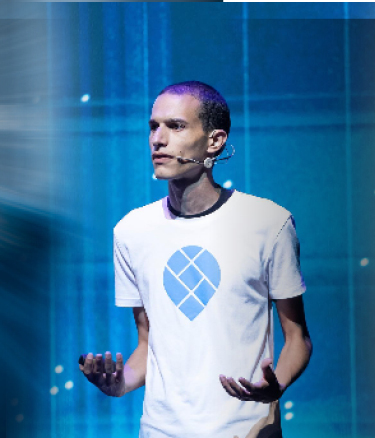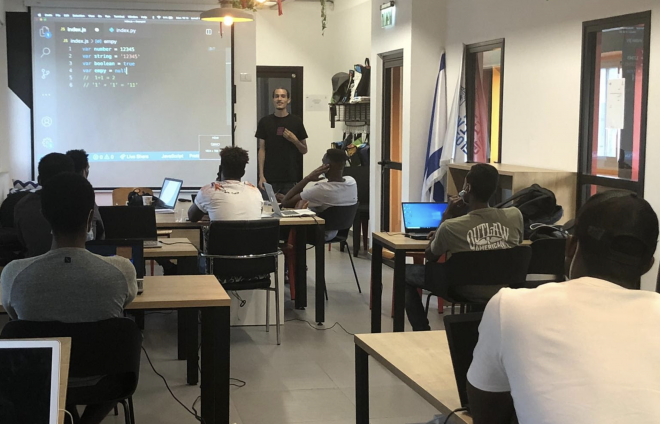A new girlfriend, once interning for O., Oprah’s magazine, lent me an old review copy of Life in Code, by Ellen Ullman. It’s a series of essays by Silicon Valley programmer and author Ullman, one of the rare women who helped build the early days of computer programming, that which our future world of artificial intelligence will be built on. I know from my work founding a tech startup (read Mountain Thinking) that the coders who build algorithms today, are creating the foundations of tomorrow.
In her book Ullman explores the personality that engineers transmit to their code. She explores the racism, sexism, classism that pervaded and still pervades Silicon Valley. She tells us how programs built 40 years ago by the world’s first coders are inexorably intwined with the foundations of every new line of code written today.
Knowing the implications of having a 27-year-old guy who drinks Soylent and who can barely speak to real people –– building the foundations of machine learning and artificial intelligence –– is frightening.
While I don’t wish the life of a coder on anyone – it can be isolating, disconnected from reality, anxiety-inducing –– I do wish that those who go for it come with a set of values that embrace whole planet thinking. How? We need equal opportunities in teaching people how to code. (Read our past story on anglers in A.I.) And we need that code to consider religion, gender, age, opinions, fake news, real news, the language of plants…animals, minerals.
And that is why I like to hear about cities that stand up and teach code to anyone who is not like them.
Asylum seekers to Israel from violent countries like Sudan and Eritrea have had a challenging time integrating into Israel. They’ve crossed deserts, evaded live fire at the Egyptian border –- yet have never really felt at home in the Promised Land.
Social projects in Neve Shaanan
A new project by the City of Tel Aviv-Jaffa is offering a coding course to selected refugees, giving them a jumpstart to a new career path. And in my eyes a chance to influence the machine.
The program is launched by The Platform, a municipal entrepreneurship center located in Tel Aviv’s Neve Shaanan neighborhood, and PresenTense, a social entrepreneurship program in Israel.
Neve Shaanan is the same neighbourhood as the location of the hydroponic urban farm project for refugees.

Refugees from Sudan learn how to be modern farmers
The coding program is organized in close partnership with the African Refugee Development Center, a non-profit founded in 2004 by asylum seekers and Israeli citizens to empower African refugees, asylum seekers and migrant workers.
The 10-week coding course provides basic coding in Python and entrepreneurial skills to asylum seekers who wish to pursue future studies in the field.
A pilot welcomed a total of 10 students, who were selected from a pool of over 50 applicants following a basic computer and logic skills test, and an interview. All 10 students completed the course successfully and expressed interest in pursuing advanced-level coding programs in future.
Fisseha Tsegai Tesfamichael, an asylum seeker from Eritrea and graduate of the course said, “My hope for the future is to teach young people from my community and share with them what I know and have experienced. The journey of life is short, so let’s make the world better together.”
Shana Krakowski, director of The Platform said: “The dedication of the students in the course exceeded our expectations, with students never missing a class and improving their skills in such a short time. We hope this will be the first of many.”
The course was guided by Ismail Kharoub, a self-taught coder and successful entrepreneur from Jaffa who was able to teach participants in Arabic, Hebrew and English.

Ismail Kharoub
While some students hope that the course will represent their first step toward a tech career, others ultimately hope to start their own businesses building websites or their own applications.
Others aim to transfer their newly acquired knowledge to their respective communities, narrowing digital divides and expanding sought-after opportunities to enter a hi-tech industry that has remained resilient during the COVID-19 pandemic.

Refugee students studying online in one of the computer labs at Arrupe Learning Center, Kakuma Refugee Camp in Kenya. Via Abdul Patient
You can now find coding workshops all over the world. One of the best workshops I have been exposed to is General Assembly in New York. But you can find classes and mentors at community colleges and online everywhere. Founded by an Israeli, there is also a tuition-free degree and diploma program at University of the People.




